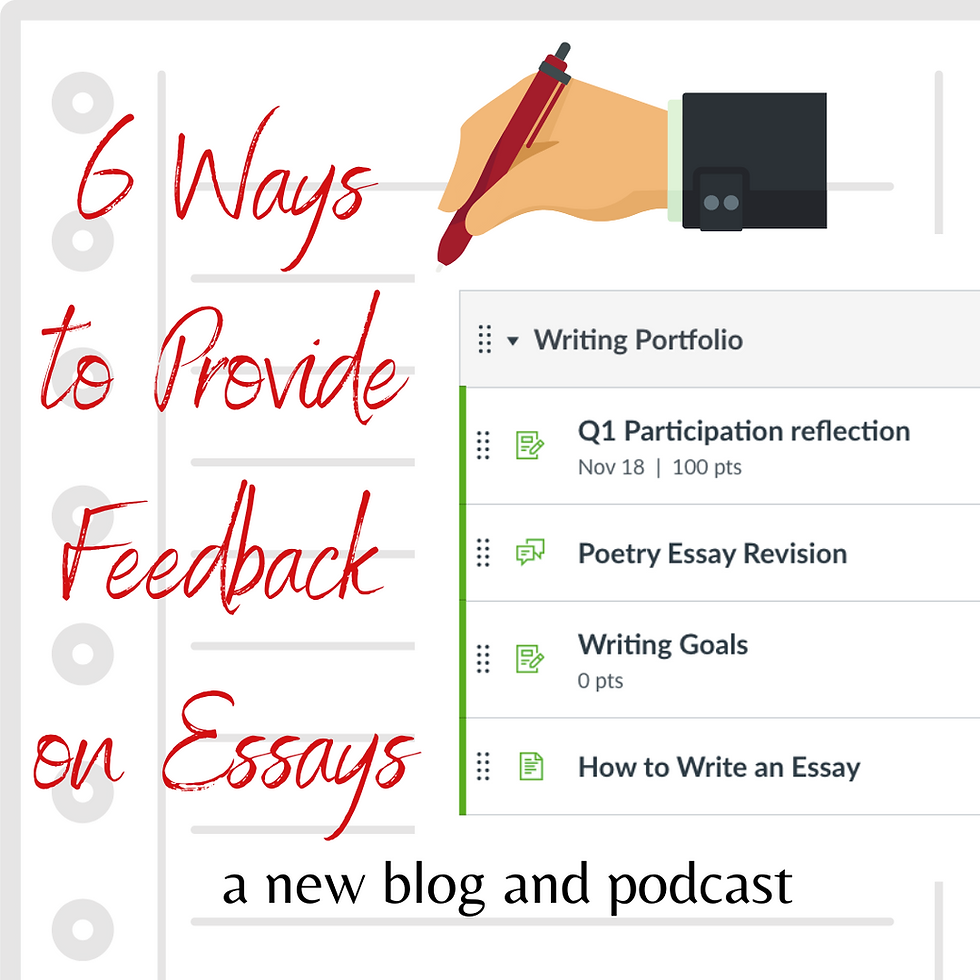How to Write a Meaningful Conclusion
- Teacher's Workshop

- Nov 26, 2021
- 3 min read
Updated: Jun 6, 2024
I’ve long held the belief that we’re doing conclusions all wrong. Traditionally, it’s a moment in the essay where the writer wraps things up, summarizes the ideas, or brings it all together. With these expectations, we’re asking for recycled, redundant ideas that we’ve most likely already encountered. Instead, the conclusion could be an opportunity for the writer to leave the reader with an aha moment, an epiphany, or moment of clarity. A conclusion should be something the reader takes with them out into the world, where they possess new knowledge that can be readily applied to reality. In a lot of ways, the conclusion is the whole point of an education. We don’t just write about something just because; we write about something so other people can use it.
In theory, an essay should start with the introduction and thesis, and then move forward in an orderly, logical, structured manner, where one idea leads to the next. We keep taking steps forward, from point A to point B. The conclusion shouldn’t be a place to backtrack or go back to point A. We should keep moving forward and go to point C.
So what’s the magical point C, you ask? It’s anything outside the topic. And by anything, I mean anything. It’s where the writer brings the topic into the real world or makes a connection to something that happened in history. It should take the ideas and evidence in the essay and connect them to a sitcom, news story, novel, short story, poem, video game, movie, song or band, performance, character, website or app, radio show, television show, celebrity, or politician. The writer could address statistics, education, healthcare, the justice system, sports, social groups, literature, or war. They might, I dare say, connect the text or the topic to their own life experiences.
The conclusion should speak to the relevance of the topic and its implications. I tell my students to first revisit the hook, or the first sentence of the essay which usually contains an observation about the human condition. It’s a big, yet simple sentence that could apply to any person, regardless of their age, geography, culture, or gender. The first sentence of the conclusion should be a more developed and complex statement that advances that first sentence of the essay, and it doesn’t need to revisit the evidence (text, source, statistics, etc.).
The conclusion is where the writer truly makes meaning from their own observations. In what other contexts have these ideas been addressed before, or where do we see these issues in today’s world? What can we do with the information we learned in the essay? What does the information say about the future?
The best example I can think of is Seamus Heaney’s introduction to his translation of Beowulf. He draws a conclusion about Beowulf’s funeral pyre at the end of the poem:
“The Geat woman who cries out in dread as the flames consume the body of her dead lord could come straight from a late-twentieth-century news report, from Rwanda or Kosovo; her keen is a nightmare glimpse into the minds of people who have survived traumatic, even monstrous events and who are now being exposed to a comfortless future.”
Heaney brings the flames of the dragon and the cruelty of Grendel and Grendel’s mother to life. The passages that contain the rage of these monsters, their ability to destroy entire villages, now gives the reader the opportunity to imagine what it’s like to experience war and genocide, and more importantly, want to fight back against forces of evil. In this way, we don’t just appreciate Beowulf as a fictional character, we see him in our politicians and hopefully, ourselves.
The conclusion has the potential to be a life changer, a moment where the writer slightly alters the perspective of their reader and inspires them to rethink reality.
Teacher's Workshop, professional development for secondary ELA teachers




Comments